Docx files for personal book: Verbum 9 part 1; Verbum 9 part 2; Verbum 9 part 3; Verbum 9 part 4; Verbum 9 part 5; Verbum 9 part 6; How to use the Verbum Lectionary and Missal; Verbum 8 tips 1-30; Verbum 8 tips 31-49
Reading lists: Catholic Bible Interpretation
Please be generous with your additional details, corrections, suggestions, and other feedback. This is being built in a .docx file for a PBB which will be shared periodically.
Previous post: Verbum Tip 8v Next post: Verbum Tip 8x
Bible books browser: timeline
Sample page:
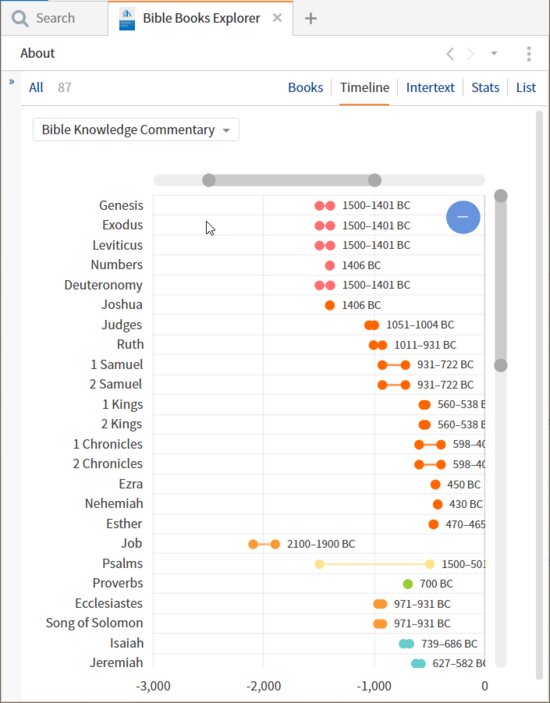
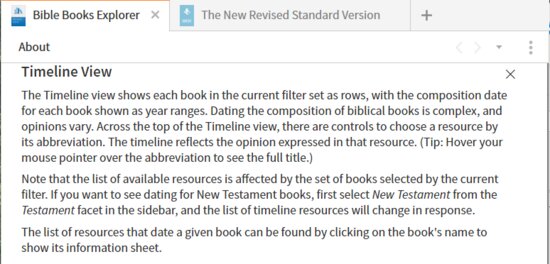
As the data for estimated dates of composition is spread across introductions to Bible books, study Bibles, commentaries, journal articles, Biblical studies (monographs) with no standard format, there is no search that will retrieve all the data available in your library. However, there are two search approaches that will produce useful results using the Gospel according to Saint Mark as the example:
{Label Origin WHERE Reference ~ <Mk> AND Subcategory ~ "Date"}
This is the label that powered the Bible Book Factbook data in Verbum 8’s Factbook. The resources with the labels were curated but by adding Label tags, the user may expand the data.
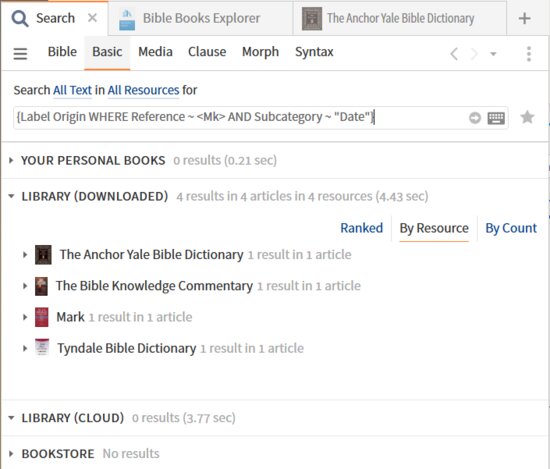
Compare this to the choices of data sources for the Gospels in the Bible Books Explorer. (Yes, an error in the select by facet keeps me from selecting John Mark as the author. See BUG: Bible book explorer fails to attribute Gospel of Mark to John Mark - Faithlife Forums (logos.com)
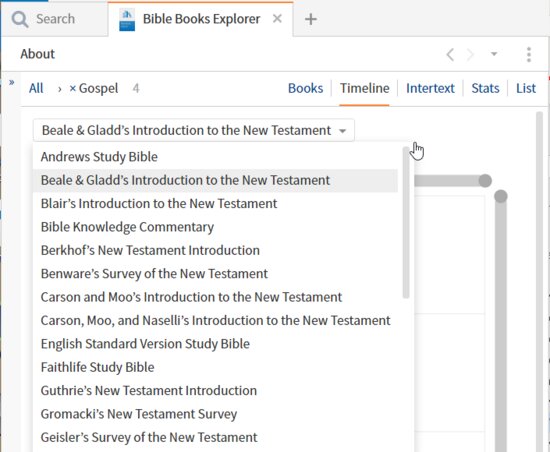
Note the scroll bar indicating that this is probably only half the list.
"Mark was written" NEAR year
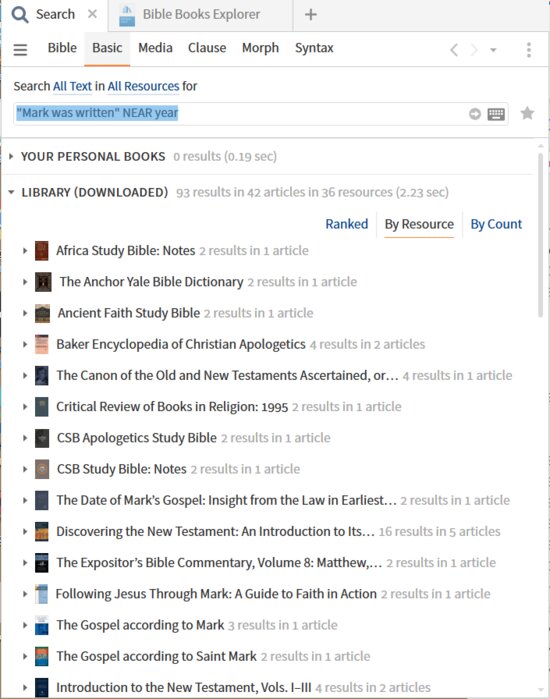
This search returns a useful set of results although it is clearly not comprehensive. How was the search created? By trial and error. <Mark> created too many false positives that had parenthetical references to the Gospel. “Gospel of Mark” and “A.D.” both proved to be too restrictive as few authors used precisely that terminology. “written in” picked up more locations than dates”. The search as run above was simply the first trial search argument where I found the majority of the results worth pursuing.
Functions within the timeline view
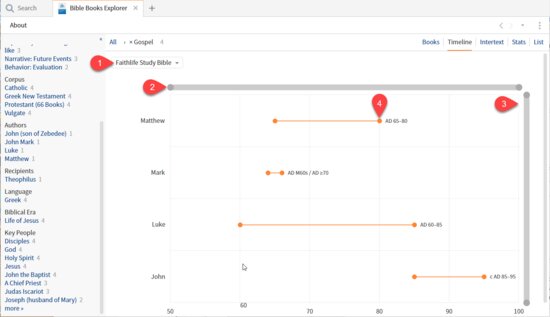
- One may select the resource from which the data shown is taken.
- One may adjust the horizontal scale.
- One may adjust the vertical scale.
- One may click and open the information sheet for the chosen Biblical book.
The information sheet has a section for Compositions dates:
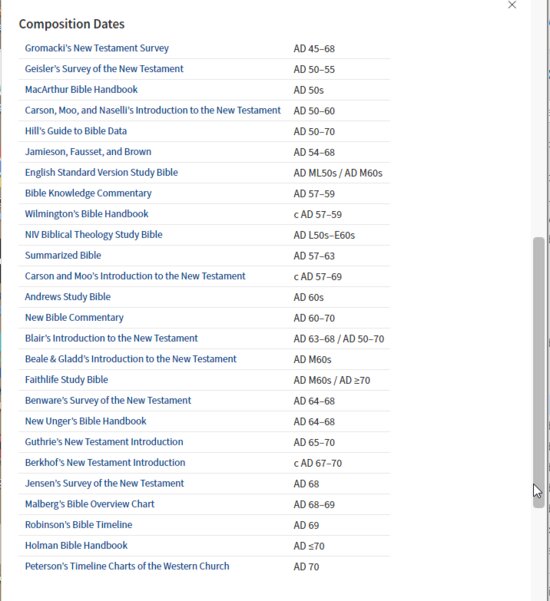
You may note that a few of the entries are single dates as if the actual date was known rather than the more realistic range of dates. I find this a useful way to identify resources to use with caution – I have little patience for over-simplification or academic hubris.